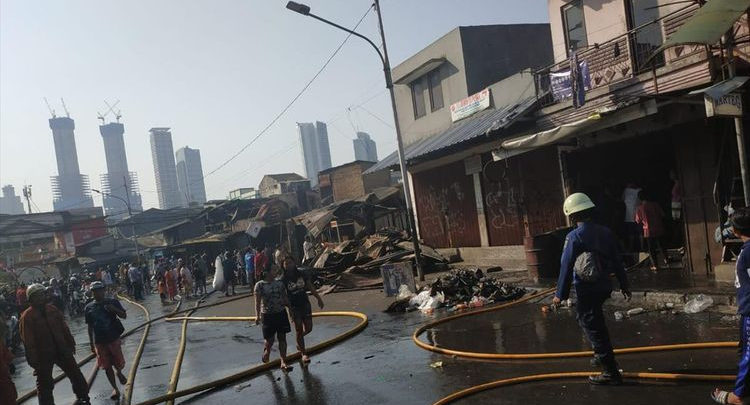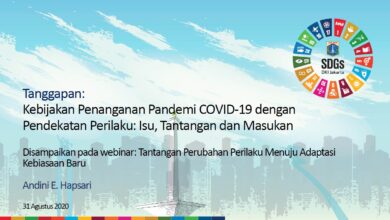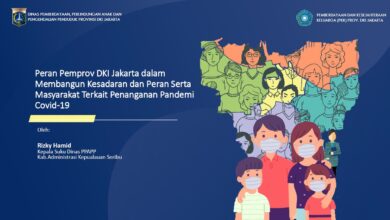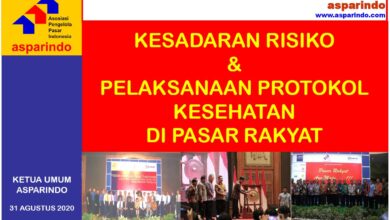
A total of 21 of 150 residents in a dense neighborhood in Kebon Kacang subdistrict, Central Jakarta, who underwent rapid testing for COVID-19 on Monday have tested positive for the SARS-CoV-2 virus.
The Jakarta Health Agency is starting to map SARS-CoV-2 transmission in crowded settlements.
“We’re currently identifying samples in densely populated settlements to see if transmission occurs there as well as to expedite handling of cases if cases are found in the area,” the agency’s head of the disease control and prevention division, Dwi Oktavia Handayani, told The Jakarta Post on Wednesday.
She said the agency would choose the most densely populated area in each district and conduct rapid tests for about 200 people in each area. Jakarta has 267 districts, 260 of which have reported COVID-19 cases.
Previously, experts warned that the urban poor living in crowded conditions were at higher risk of contracting the virus.
The capital, home to at least 10 million people, has countless densely populated areas, known as kampung, often next to upscale residential areas and along riverbanks.
Statistics Indonesia (BPS) recorded that Jakarta had 445 community units that were categorized as “slums”, 15 of which were categorized as high density, 99 moderate, 205 light and 126 very light.
Meanwhile, Kebon Kacang subdistrict head Aiman said he was concerned that many residents in the densely populated area near the banks of the Krukut River in Kebon Kacang were still going outside and not obeying physical distancing measures amid the city’s implementation of large-scale social restrictions (PSBB).
“We’ve been monitoring but the people keep gathering outside, sometimes without wearing a mask and not maintaining a safe distance. It’s very dangerous as the neighborhood is a densely populated area in which houses are adjacent,” Aiman said on Tuesday, as quoted by kompas.com.
He said his administration, the police and the military had warned residents and asked them to stay at home and practice physical distancing to curb the spread of the disease.
He added that even people under general monitoring for COVID-19 had been found engaging in activities outside their homes. “They have been told to self-quarantine at home for two weeks straight but apparently they didn’t listen,” he said.
As of Wednesday, Jakarta had recorded 4,709 confirmed cases, with 420 deaths ‒ a death rate of 9 percent. So far, 713 people have recovered from the disease.
Artikel ini telah tayang di thejakartapost.comdengan judul “COVID-19: Jakarta’s satellite areas extend mobility restrictions for two weeks”, https://www.thejakartapost.com/news/2020/05/07/residents-of-crowded-kebon-kacang-in-central-jakarta-test-positive-for-covid-19.html
Penulis : Alya Nurbaiti
Editor : The Jakarta Post
Foto Cover : Fire fighters and residents are seen around the site of a fire on Jl. Jati Bundar in Kebon Kacang subdistrict, Tanah Abang, Central Jakarta, on June 30, 2019. A total of 21 of 150 residents in a dense neighborhood in Kebon Kacang subdistrict, Central Jakarta, who underwent rapid testing for COVID-19 on Monday have tested positive for the SARS-CoV-2 virus. (kompas.com/Rindi Nuris Velarosdela)



